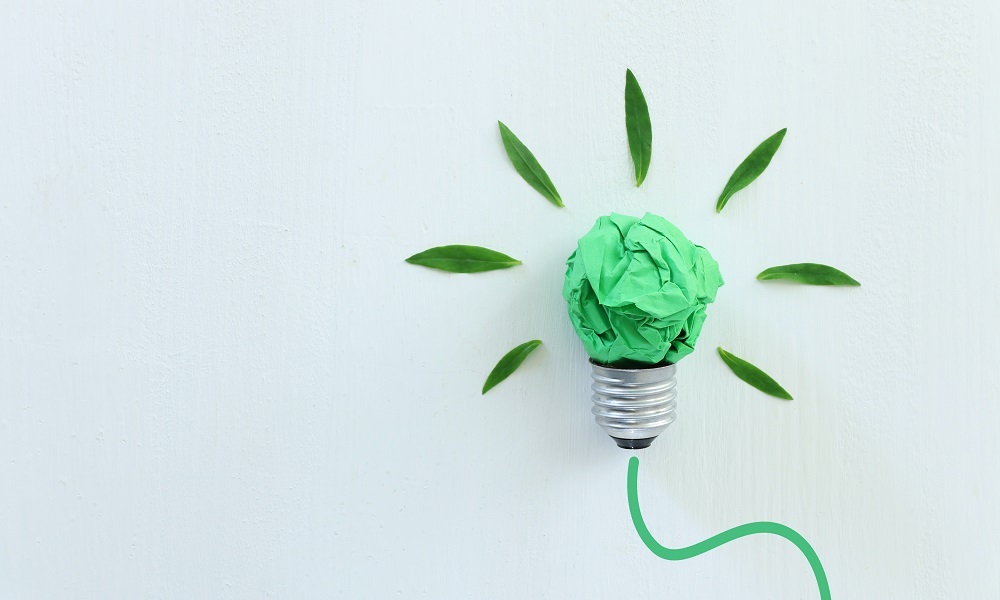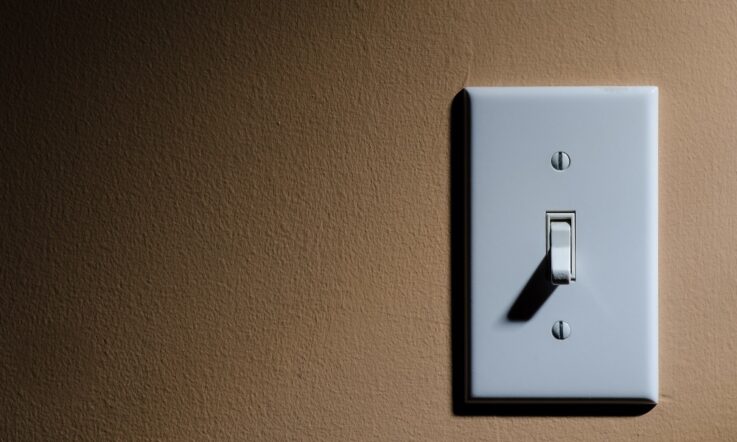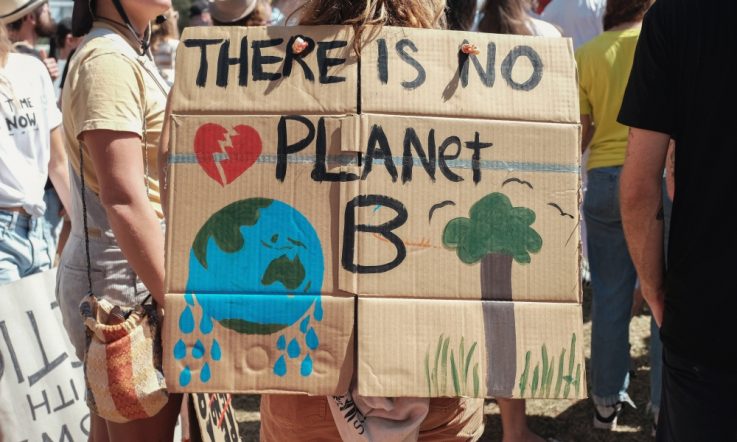Thanks for downloading this podcast from Teacher. I’m Dominique Russell.
The most recent instalment of Mission Australia’s Youth Survey – which surveys tens of thousands of Australians aged 15 to 19 – shows that young people are becoming increasingly concerned about the environment. In your school, what initiatives do you have in place to engage students in learning about sustainability, and how their actions can have a positive impact on the environment?
At one school in Victoria, sustainability is embedded across the school, and in this episode, their Sustainability Coordinator, Venkata Kalva, joins me to discuss their journey to prioritising sustainability in the school community, the function of the school’s Green Team, and advice for other schools across the country looking to prioritise sustainability in their school settings.
Venkata Kalva: Hello everyone, my name is Venkata. I'm from Brentwood Secondary College. We are a 7-12 college located in Glen Waverley with nearly 1600 students. Brentwood has recently celebrated its 50th birthday a couple of years ago. We offer 7-12 Curriculum in VCE, VM [Vocational Major] and VET. So my role, in addition to being a classroom teacher, I hold 2 positions of responsibility at the college. One is about the future of our students as the pathways manager, and the other one is about the future of the planet as the sustainability coordinator.
The role that I have been really passionately working for the past 6 years is the Sustainability Coordinator, where I get to run a student leadership group called the Green Team and also are the responsible person for working on the 5 modules of the ResourceSmart Schools Program.
Dominique Russell: And so you've been the Sustainability Coordinator for 6 years. I'm interested in how your school got started on its sustainability journey. Did it start when you became the Sustainability Coordinator, or has it gone for a bit longer than that? Why was it important to your school as well to really get started on this journey?
VK: I would give the credit to one of my previous colleagues, Thea, who used to work at Brentwood and she introduced the ResourceSmart Schools program at Brentwood in 2010. The program took a small pause after she had left the college, but then we restarted it in 2016 and that's when I stepped into this role.
And why is it important for our community? At Brentwood we learn as a connected community so that the students grow as individuals who are future ready. That's our vision statement. So this not only includes the academics that we teach in the classrooms to secure their future pathways, but it's also about making their futures sustainable, ensuring that they go into a future which is environmentally friendly.
DR: And so we'll get to understanding a bit more detail about the 5-star [ResourceSmart] Program a little bit later in this episode and some more detail about the Green Team as well. But I'm interested in first getting a bit of an understanding on, sustainability is really embedded across your school. So for our listeners, can you give me a bit of a picture of what this looks like, what kind of initiatives do you have in place?
VK: Yeah. To start with the first project that I undertook was introducing recycling bins in all our classrooms. And from there we went on to initiating several other projects. Over the past few years, Brentwood has not only focused on improving our infrastructure and reducing our waste, electricity, and water usage, but we've also worked on the 17 sustainable development goals.
We have reduced our impact on emissions by nearly 25% and also have saved the college nearly $900,000 in savings. And when it comes to what the school looks like now, everyone is aware of the Green Team. People know about the work that we do and people are willing to come on board to help us. And it's not only the practices that are seen at the college, but most of the staff and students also take such good practices home and they seem to be implementing those good practices at home and helping their family and friends as well.
DR: I'm interested then if that was a something that you really planned for, to have the students really take these sustainability practices into their personal lives. Was that something that you aimed for or was that a bit of a surprise? Did the students just kind of do that themselves? Were they really passionate about it?
VK: When I started, I thought I was just leading a team of young individuals who wanted to bring the change, hoping that we could change the things at the college, but we did not know, or we did not really see the impact until after a few years when the community started coming to us and sharing some of the stories they get from the students doing different things at their homes or from the community.
So that's when we came to know that like it's having multifold effect and it's not restricted to just Brentwood.
DR: Fantastic, yeah, it's got such a wide-ranging impact it sounds like. And I'm sure a really crucial part of that is really sustaining that culture of valuing sustainability and, like you say, the students and everyone at the school are really passionate about it. An important part of being able to sustain a culture like that is having buy-in from everyone and it sounds like you've really nailed that. So how is that something that you are able to maintain? How do you keep everyone really interested and really passionate about it? Are there any initiatives that you have in place that have been particularly effective for that?
VK: Great question, and I should say that I'm extremely lucky to be in this position to have the wonderful support from all my colleagues and the wider community, too. You would agree that teamwork begins by building trust, so the Green Team has, over the past few years gained the trust from all our staff and the wider community through regular communication and creating innovative awareness campaigns.
Staff appreciate the data that is shared with them on a regular basis to show that the environment is improving at the college and that we are making a positive change. They do love the recycling posters that we have designed and put them in some unusual places for them to read, for example in the toilets where we get the full attention from them.
Feedback from several staff and students indicates that many of them have been practicing such good practices and not only at the school, but also at home. So I think we have built a team of Planeteers and the Green Team being the captain planet running the boat here.
DR: And so let's talk about the Green Team in a bit more detail then. Who's part of the team? And you've mentioned already in our conversation a bit about what they do, but can you explain in perhaps a bit more detail about their overall role?
VK: Definitely. So, the Brentwood Green Team comprises of nearly 30 students every year from year 7 to 12. The team meets every week during a lunch break to discuss the sustainability projects at the college and develop new ideas and report progress on the current projects.
Some of the popular programs run by the Green Team every year include Brentwood Tree Day, the Earth Hour, Brentwood Clean Up Day, World Environment Day and Earth Overshoot Day.
So the team runs campaigns and develops awareness programs, such as videos, on a regular basis that keep our community engaged.
More recently, our Green Team has also initiated a Student Engagement and Voice in Environment Network, abbreviated as SEVEN. This is a student body that works mainly online to collaborate with students from other schools and share their ideas with each other. It's been running successfully for the past 2 years and we're hoping to have some on site networking meetings in the future.
DR: Fantastic. And so is it just students that are involved in the team or are there teachers and community members involved as well?
VK: It's mainly the students that run the show. Teachers are there at the back just to facilitate and ensure the technology and other things are working properly.
DR: Great. And how do these students get into the team? Is it whoever volunteers are allowed to be welcomed into the team? Can they stay for more than one year? Or what's the situation there?
VK: It's a voluntary extracurricular program, so there's no commitment required from the students. It depends on their availability and the workload they have, so they can just walk in and walk out of the Green Team whenever they want. And we have noticed that students, when they come into the team, they usually enjoy the work that they do and they usually commit for more than one year, most of the time.
DR: Fantastic. And so let's talk in a little more detail now about how your school is a 5-Star ResourceSmart School. For those who may not be familiar with this, may have never heard of that before, can you tell me a bit about what this means and why it's important and also how your school achieved that?
VK: Definitely. So the ResourceSmart School Program is a free program offered by Sustainability Victoria. It supports all the Victorian schools to embed sustainability across the school facilities, community and curriculum, while saving the resources and money for the school. Schools that join the program have access to an online portal where they can learn and practice ways to integrate sustainability and work through the 5 modules of core, energy, waste, water and biodiversity.
Upon completion of the actions in each module, schools achieve a star. And many schools aim to get the 5-star status and we are probably the only secondary college in Victoria at the moment that is certified as a 5-star ResourceSmart school.
DR: And when did you achieve that? Is that a recent addition?
VK: We achieved the 5-star status last year [in 2021].
DR: Great. And do you need to do anything to maintain that or is once it's recognised it's there forever?
VK: No, you're right. It needs to be renewed every couple of years. So each module has got an expiry date within which we need to demonstrate that we are still sustaining the practices and having a positive impact. So ongoing renewal needs to be done to maintain the module and the star certification.
DR: Great. I'm sure that's a very big motivator for everyone at your school to keep going and keep improving and keep making new goals and meeting them.
VK: Yeah, absolutely. Yeah. It's a wonderful journey. Any school that gets involved in RSS [ResourceSmart Schools] gets to see a lot of positive things come out of the program. I'm sure the Business Managers at the schools will be really impressed to see the financial benefit and the community from the benefit to the environment.
DR: I'm interested in finding out if you have any new plans for the 2023 school year, are you planning on introducing any new initiatives or are you going to keep things how they're going?
VK: Sure. Brentwood launched a new campaign couple of years ago. It's titled Towards Zer0 Bremissions, which also got us the Premier Sustainability award last year. So the campaign is all about reducing our carbon emissions. We currently sit at 540 tonnes annual emissions and we would like to see ourselves as a net zero emitting school by 2030.
We have already seen a 25% reduction in our emissions in the past 6 years and we're hopeful that we will reach that milestone by 2030 by ensuring that we continue to do what we're doing, but also try to put in some new initiatives. So, goal for next year and the following few years will be mainly focusing on how we could achieve that goal.
DR: Fantastic. And so for people who may be listening to this episode and thinking, ‘oh my goodness, how can you go from that number to net zero?’ Can you give me a few practical examples of things that you've already implemented to reduce your emissions by 25% already?
VK: Once again, the ResourceSmart Schools Program has been really helpful in keeping a track of all the usage data. We have noticed that the bulk of our emissions was from the energy used at the college from electricity and natural gas. As a measure to reduce our impact on those 2 areas, we installed a 99-kilowatt solar PV [photovoltaic] system on the college roof, which is doing a wonderful job.
And the other activities include recycling. A significant amount of the landfill waste now goes to either a cardboard or combinatory cycling. In the community and at school, we do a lot of tree planting every year and we're hoping that some of the emissions from the college can be offset from tree planting.
A few other smaller initiatives include the students promoting meat-free alternatives, and they've also published a meat-free Monday cookbook last year, and we're hoping to get another edition published.
So in the future, our aim will be to invest more in solar PV if possible and try to find new ways of reducing our emissions.
DR: The last question that I wanted to ask you, Venkata, was just again for people who are listening to this podcast and feeling quite inspired by all of the amazing work that you've been doing over at your school and they're wanting to get started on their own sustainability journey or really improving things for the 2023 school year, do you have any advice on how to really get started with that?
VK: Definitely. Well, even though Brentwood aimed for the 5 stars over these years, our focus has always been about the planet earth. So my suggestion to everyone is in order to win, you need to begin. So 6 years ago, we never even dreamt of getting a star or a 5-star status. But now we have that and we have achieved that.
So I recommend schools joining the ResourceSmart Schools Program as the first step, because the program provides you the structure, direction and a goal to work towards. The program is also facilitated by the regional facilitators who come into your school and to work with you to identify the sustainability issues to work on.
My second advice is to collect evidence and data of your actions. Teachers especially love data and if you can see that the data is showing some positive impact then many staff will come on board to support you.
Community engagement improves when they notice a positive change is happening at your school. So those are my 2 main pieces of advice.
One quote I would like to quote here, which has been inspiring my students all these years, is ‘be the change you would like to see around you’. So if you put students at the front and give them an opportunity to bring the change, I'm sure they will all work collectively to achieve whatever sustainability goals that you want to. So it's been an incredible 7 years of journey working with passionate, young individuals at our college who wanted to improve the environment at Brentwood.
So on behalf of everyone at Brentwood, I would like to thank the past and present students, staff and parents for their valuable contribution on this journey.
There are also a number of community partners, including Sustainability Victoria, the ResourceSmart Schools Program, the City of Monash and a number of other community partners who have helped. So thank you to everyone.
We've also got our own Green Team website. It's www.brentwoodgreenteam.com.au, and that has got all the projects and progress we have made over these 6.5 years. So please do visit the website and you can also find a web e-mail address there. So please get in touch with us if you need any help.
That’s all for this episode. Thanks for listening. Be sure to subscribe to our podcast channel wherever you get your podcasts and we’ll be back with a new episode very soon.
Venkata Kalva says having a goal to work towards is a good first step to being a more sustainable school community. Reflect on the work your school community is doing to be more sustainable. Can you identify some areas of improvement? How could you focus on one of these areas in the 2023 school year? Can you involve students, staff and the wider community?



